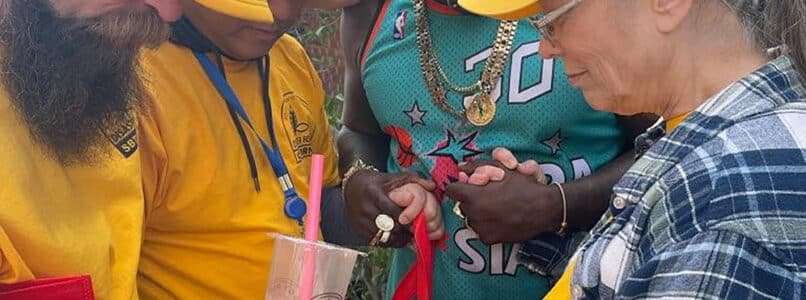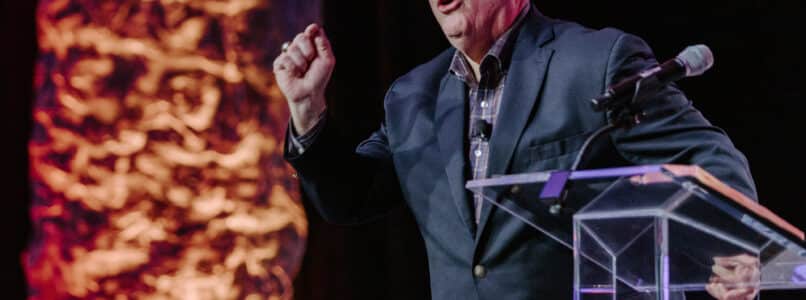LITTLE ROCK, Ark. (BP)—Peer pressure can be a good thing.
It’s not something usually pressed in a student ministry setting, but Bill Newton has discovered its value at Immanuel Baptist Church.
Talk to youth ministry leaders and you will soon learn the expansive impact cell phones have on students. Approximately 95% of American teenagers have one.
To get an idea on the speed at which that point came, consider that in 2011 nearly a quarter of teens (23%) had a smart phone. That figure exploded to 73% in 2014 and by 2022, practically all of them carried one.
Cell phones had been available before, but the release of the iPhone in June 2007 changed everything. The device not even old enough to vote fundamentally altered youth culture with constant connectivity that tends to become constant distraction.
One step that ministries are taking to combat this is having phone-free zones, whether on trips or even at weekly gatherings.
It’s not a requirement, but at Immanuel the peer pressure has become not to have a phone during student activities.
“We created a ‘cell hotel,’ and it has worked,” said Newton, interim student ministry leader at the church and Next Gen and Discipleship strategist for Arkansas Baptists. “We don’t super-police it, but it’s been a win.”
Similar to parents checking children into the nursery, students check in their phones and receive a matching tag. A “phone valet” watches over them.
“I knew I had a winner when a junior high mom gave me positive feedback,” said Newton, who had done something similar in a previous church.
Students were told about the cell hotel three weeks before it was implemented. Now, a phone ring or chime during the gathering gets looks from students, not just adult volunteers.
Dan Gibson, the Missouri Baptist Convention’s Next Gen strategist, began implementing a standard as a student minister limiting cell phones when he noticed students using them—so they said—to follow along on an app rather than a printed Bible.
Missouri Baptist Convention camps have a policy that limits cell phone availability and may become more stringent, he said.
“It comes down to culture, and you want one where students are focused on the Word,” Gibson said. “Phones are filled with distractions. One moment you’re focused, the next moment a notification completely derails your thoughts.
“When I saw students replacing their print Bible with using an app, I became insistent that we begin using a print version.”
He added that convincing students not to rely on phones won’t happen overnight but will be worth it.
“No one wants to be the outlier,” he pointed out. “Pursuing cultural consistency is going to take some time.”
Mike Fitzgerald tells students at First Baptist in Kearney, Mo., that he has a phone cubby saved in his Amazon account and isn’t afraid to buy it.
“It’s a firm rule for them to use physical Bibles,” he said. “There has been good buy-in on it and no pushback from parents.”
Students’ collective ability to leave phones in their pockets prevents the addition of a cubby for that purpose. Fitzgerald has been with First Baptist for more than a year, about the amount of time the church went without a youth minister before his arrival.
“There were a lot of great people to step in and keep the ministry going. So when I put this into place from the start, they were very supportive,” he said.
He added that it helped that the church had attended a camp for several years with a no-phone policy, so it wasn’t a completely foreign step for students.
“They saw the impact it made,” Fitzgerald said. “Our current juniors and seniors are at a point where they recognize issues and difficulties with phone and social media addiction.
“Our adult volunteers go by the rule too, of course. It’s important for them, and parents, to be the example. This generation is very sensitive to hypocrisy. If they see us on our phones all the time, they’re going to notice.”
This article originally appeared on Baptist Press.
















